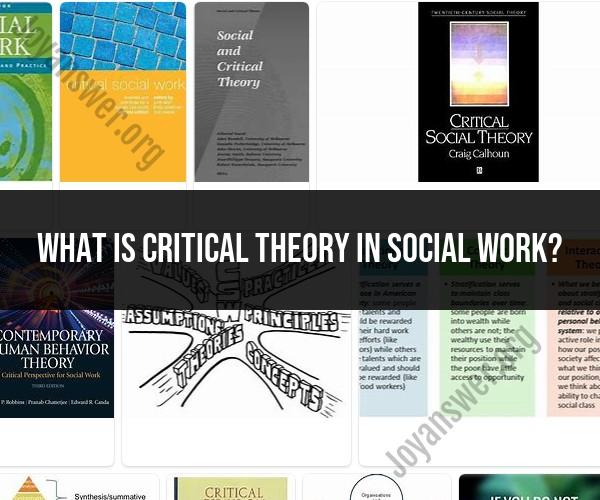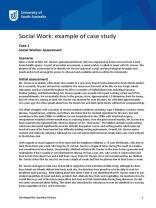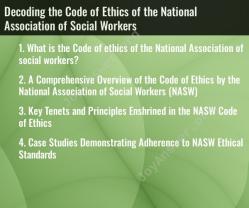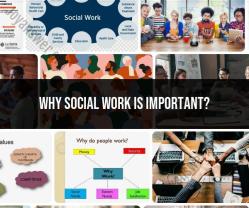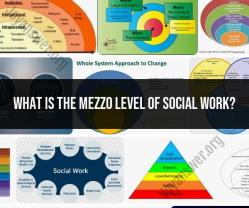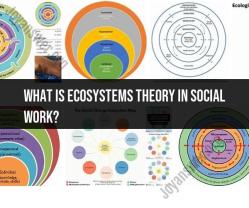What is critical theory in social work?
Critical theory in social work is an approach that draws from the broader field of critical theory, which originated in philosophy and social sciences. In social work, critical theory focuses on examining and addressing the structural and systemic issues that contribute to social inequality, injustice, and oppression.
Key aspects of critical theory in social work include:
Social Justice: Critical social work emphasizes the pursuit of social justice. It aims to identify and challenge the root causes of social problems, such as poverty, discrimination, and inequality.
Power and Oppression: Critical theory in social work explores how power dynamics and systems of oppression impact individuals and communities. It highlights issues related to race, class, gender, sexuality, and other forms of identity.
Reflection and Self-Critique: Social workers using critical theory engage in reflective practice, critically examining their own biases, values, and actions to ensure that they are not perpetuating oppressive systems.
Advocacy and Activism: Critical social workers often engage in advocacy and activism to bring about social change. They work to challenge and transform policies, institutions, and systems that contribute to injustice.
Interdisciplinary Approach: Critical theory in social work draws from various disciplines, including sociology, political science, and philosophy, to analyze complex social issues comprehensively.
Empowerment: Empowering individuals and communities is a central goal of critical social work. This involves equipping people with the knowledge and resources to challenge oppressive systems and improve their own lives.
Intersectionality: Critical theory acknowledges that individuals' experiences of oppression are often shaped by multiple intersecting factors, such as race, gender, and class. It considers these intersections in its analysis.
Research and Analysis: Critical social work encourages research that unveils hidden power structures and exposes the ways in which societal norms and policies perpetuate inequality.
Overall, critical theory in social work seeks to go beyond surface-level solutions to social problems and address the underlying systemic issues that perpetuate injustice and inequality. It encourages social workers to be critical thinkers, advocates for social change, and allies to marginalized communities.
